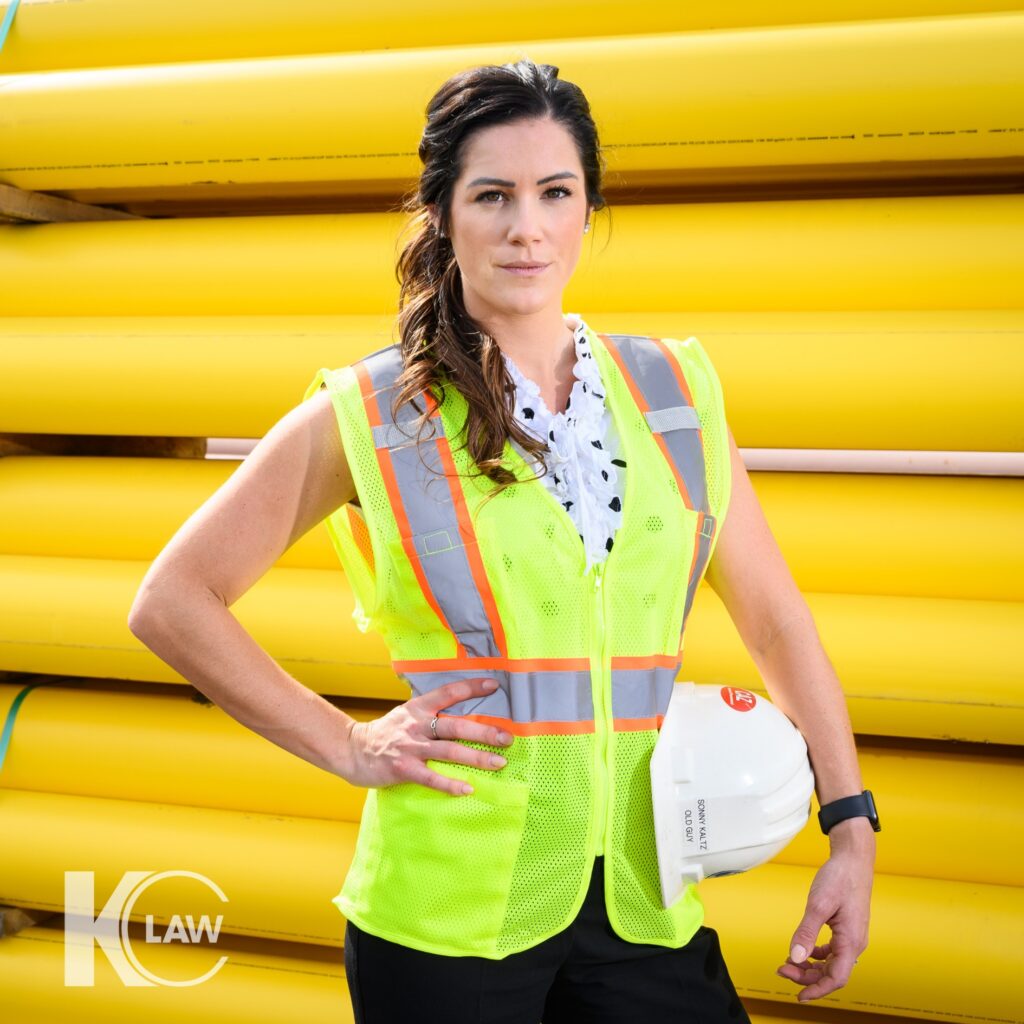By: Jacqueline Kaltz-Coulombe
Congratulations, you have decided to start planning the transition of your business to the next generation. But are you planning to give each child an equal percentage whether involved in the business or not? As owners (and parents) do you think you are doing what’s best for the family? Is it what is best for the business? Sometimes what seems equal is not fair.
Let’s face it, the transition of your business to the next generation cannot happen overnight. An estate plan, buy-sell agreements and stock certificates are not going to address all the family and business issues. It takes time and resources to create a well thought out exit plan that considers all aspects of your family and your business. An owner that is considering an exit within the next 3–5 years should start planning right now. Family transitions typically involve emotional and uncomfortable conversations. The kind of conversations that are typically avoided within families. However, allowing yourself the time to work through these without the added pressures of short deadlines will help ensure the decisions made enable family harmony to continue and the business to prosper.
It is extremely common, unfortunately, that business owners who want to pass their business to one or more of their children fail to develop a plan. More often, business owners try to develop a plan without first dealing with some of the difficult factors of a family business—
the people, including both family members and employees. Also, owners fail to recognize that they are simply not ready to relinquish their ownership, control or involvement in the business, especially for those whose identity is tied to the business. The decisions and conversations that the senior, controlling owners have now, will help the next generation of family members understand why decisions were made and how to move into the future together. Thus, avoiding conflicts that typically arise when the senior family member(s) is no longer in control.
When considering the overall exit strategy, it is important to consider and address options for family members that want or need to get out of the business. The reasons are unlimited, but the issue tends to revolve around money and their need for that money sooner rather than later. It could be an owner that needs to exit due to a divorce or an owner who wants to pursue another opportunity. When it comes to the next generation, owners often avoid or delay conversations to maintain control. Worst case scenario, the owners have avoided asking even the most basic questions about the business, such as: Do they want to be a part of the business? Do they want to work at the business? Do you want to be an owner? Not asking these questions can cause missed opportunities, lack of personal planning, or misunderstanding of what is expected within the business. It is important to have these conversations with all members of the family to have a clear understanding of the decisions and how it will affect all parties, especially those involved in the future operation of the business.
Once these conversations are had with the family members, the owner can decide whether to bring in a family member or to promote a family member and how it may affect the other family members, employees and the business. The owner will need to answer many questions: Is the family member right for the job? How well does this family member know the employees and the business? Do they get it, want it and have the capacity to successfully run the business? How prepared is the family member to take on the position and ownership—the good and the bad? The owner will also have to consider how this family member taking a position or being promoted, becoming an owner, will affect other family members both involved and not. How will it affect the owner’s relationship with this family member or the relationship of this family member with other siblings, aunts, uncles, and cousins? Smart owners will establish criteria for bringing family members into the business. Setting the ground rules for expectations and measurables. This is very valuable for situations where there are multiple owners, whether related or not. (Remember, there are other ways to provide (or make “equal”) for the owner’s children that are not involved in the business and will not be receiving interest in the business.) Clearly identifying the key position within the business, having clear job descriptions and establishing a method for tracking value-added and accountability, are highly recommended. Establishing clear rules and guidelines for accountability and reporting methods are equally important. This can be done by creating an organizational chart. Having this framework provides a governing hierarchy where all parties are clear on what they are responsible for as well as what others are responsible for.
For example, you have two children and want to each give them an equal percentage of the business because this business has been your livelihood and you want both children to have the same opportunity for wealth. This scenario presents multiple problems among and beyond the many considerations we addressed above.
It is common for owner(s) to want to pass on and provide wealth to the next generation. It is essential to the well-being of the business and the family for the owners considering passing this wealth by transferring equal percentages (or interest) to their children to stop avoiding these conversations. If one of the desired goals for the owner is to pass on wealth by giving equal percentage (or interest) through interest in the business, they should ask themselves the hard questions: Why do you feel each child should have equal amounts? Is this because you as the owner, and parents, have made a living off the business? Is it because each child is bringing equal value to the business? Is each child spending equal time on the business? Is the value each child is bringing different? Do the positions that each child will hold lead itself to equal responsibility? What about equal stress? Does each child have a similar understanding of the business, its needs, its product/services, its future goals? Does each child have a passion for the business? Will each child be able to meet the position’s job qualifications, duties and expectations as defined? If this child was not related to you, would they be a top candidate for the job? Would you pay them the same salary? If they are working for the business currently, are they meeting your expectations?
Selecting the most qualified candidate to meet the goals of the business for its continued growth and success should be the owner’s primary goal. This should remain true even when the candidates are family members.
It is paramount that owners consider the impact on the key employees when deciding which family members will be brought into the business and who will help run the business. Key employees drive your business forward. These key employees are accustomed to working with the existing owner(s) and respect their way of running the family business. Human nature, in general, fears change. The key employees may have concerns about their future security based on the decision you make. This concern is typically addressed if the framework discussed above is followed but we also recommend business owners create a training or mentoring program for family members. We suggest that this training/mentoring come from the key employees. This allows the key employees an opportunity to learn the skills and personality of the new family member. Another common solution is to create an advisory committee consisting of the key employees and get them involved in some of the exit planning and mentoring discussions.
Most family businesses do not survive past the second generation. Why is that? Probably because the owner did not address the questions posed above and the most important element of future success—leadership. The success of your business is in large part connected to your employees. Having a plan for this transition and allowing the employees to have knowledge about that plan prevents this fear and insecurity in the future. The more comfortable they are with the next generation and with what the stages of the plan are, the more confident they are likely to be in the future of the business. Thus, the owner should consider how the new ownership structure will affect the employees, and how the employee will react to the decisions. As the current owner, your employees are loyal, have worked alongside you and may even feel proud to work for the business because they attribute the business culture to you. Will employees have that same pride and loyalty with the next generation? Will they be proud to continue to work with and for those family members? Whether you as the owner want to confront these questions or not, the truth is, your employees are talking about it. Employees tend to believe there is a lack of leadership when owners are afraid to confront these issues. In the event owners make decisions without considering these issues, the employees may fear the future of the business and jump ship. Owners that have trouble retaining their key employees will generally lose the rest of the quality workforce. Now, the future of the business, its ability to take on work, make profits—is no longer looking good for anyone. Not for the exiting ownership, family members involved or not, and definitely not for the employees and family. Without the future profits of the business, the exiting owner’s goals will not likely be met. This will directly affect the owner’s retirement plans, maintaining current lifestyle, inheritance goals for both family members involved in the business and not, and the plans for the family’s future. So, before deciding to promote junior and/or transfer equal shares to all children (involved or not), deal with these questions. Otherwise, you may be asking yourself: “did my intent of being fair to the family, giving each child equal shares or promoting a family member, actually diminish the future value for everyone? Or even worse, will the business be able to survive?”
The more owners the more likely different personalities, different opinions on what the business should be doing, where the business should go, how the business should operate and how much to distribute to ownerships. What about whether the family members get along or will in their future roles? What about how a child spending sleepless nights running the business may feel about sending distribution checks to family members not involved in the business (and likely these family members have little understanding of what the business does, its products/services, customers, employees, etc.). This presents many struggles for the family members that will continue to operate the business. Will resentment grow? Will the operating family member be able to manage all the personalities of the next generation? Is that what is best for the business? For the future of your legacy? The family members become even further disconnected from what is going on, where the business is going, or what the business needs. Yet, this does not mean these family members will not have an opinion. What made the family business so successful when the business first began was usually an all-hands-on deck philosophy.
Everyone working for the same goal with the same vision. Yet, when the next generation comes of age, they may have different beliefs, passions or career goals. Most owners want to provide this option to their children, so why would you keep family members that are disconnected from the business as owners, potential leaders, and allow them to have a say on what the future of the business should be. This puts more pressure on the new family members coming into ownership to manage the whole family and that as President or CEO you are also responsible for ensuring the whole family harmony. This is business. Its purpose is to do what you love and make money doing it. Transferring equal shares to your children just because they are your children is not fair to the business. It is not fair to the family members that will continue to operate the business. It is not fair to your employees. Doing this will likely diminish the strength and growth of your business—and your legacy.
In sum, the business has been your life’s work. And your work has been and will be a part of your family. A family legacy. Don’t you want to ensure it survives? To ensure family harmony for your retirement and the next generation. It is important to consider the effects these decisions will have on the business, your employees and other family members whether involved or not. It’s time to have the conversations and be realistic. Stop avoiding them. Take control of your future and start planning for yourself, the future of your family and the business.






















